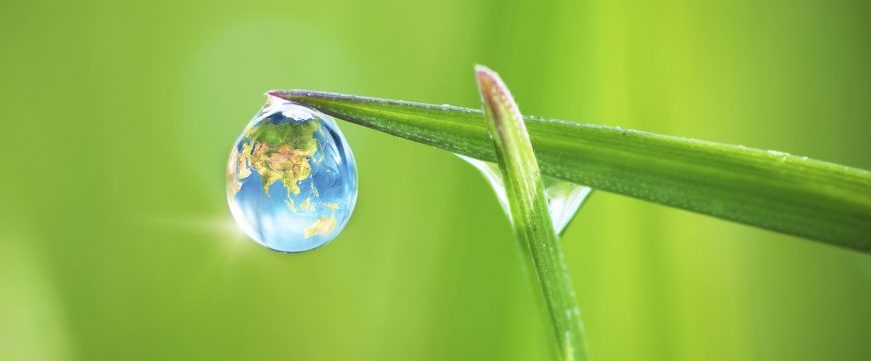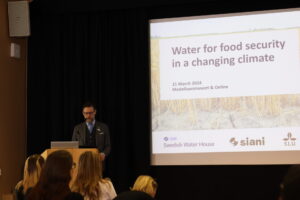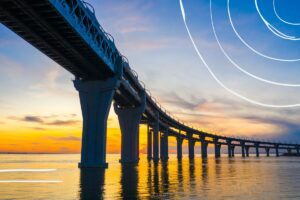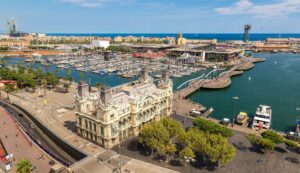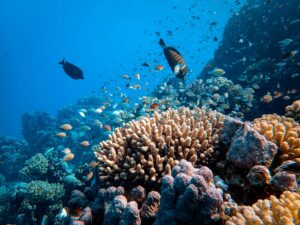The blue thread: How water connects the SDGs
It’s time to accelerate action if we are to reach the Sustainable Development Goals and the best way to do so is through water, writes SIWI Programme Officer Kristina Johansson, ahead of the 2019 High-Level Political Forum on the 2030 Agenda.
When astronauts go to space in search of life on other planets, they first search for one thing – water. All human activity, as well as our environment, are dependent on this precious resource. Today our world is facing large-scale challenges such as climate change, ecosystem degradation, biodiversity loss, inequality and poverty. All these challenges require our urgent response, not in the future, but now. And just like the astronauts, we should be focusing on water.
This month, SIWI is participating in the High-Level Political Forum (HLPF) that reviews the progress made on the 2030 Agenda and its Sustainable Development Goals (SDGs) which is a plan of action for both people and the planet. This year, the UN member states are reviewing SDG 4 on education, SDG 8 on decent work and economic growth, SDG 10 on reducing inequalities, SDG 13 on climate action and SDG 16 on peace, justice and strong institutions. Recent reports, including from the UN Secretary General, conclude that some progress has been made on reaching the targets, but the pace is too slow and the ambitions too low. There is a need to ramp up and accelerate action. So, what role can water play?
Many of the SDGs are interlinked and one trait common to most of the SDGs is their dependence upon sustainable freshwater resources. As water finds its way from mountain tops and glaciers, through rivers, and diverts into lakes and oceans, it is also the blue thread that flows through all SDGs. Water has its own SDG in number 6 on clean water and sanitation, but as both humans and nature depend on access to water in quantity and quality, water is in fact a powerful fuel for reaching practically all of the 2030 Agenda goals.
For example, SDG 13 calls for urgent action to combat climate change and its impacts. People and nature alike will experience climate change primarily through impacts to the water cycle in the form of droughts and floods. Such extreme water events can destroy any development progress low-income countries have made over that last decades. At the same time, nature-based solutions such as wetlands can contribute to mitigating greenhouse gas emissions by absorbing and storing carbon while also reducing floods, relieving droughts and protecting coastlines.
SDG 13 is closely linked to SDG 16 on peace, justice and strong institutions. Worsening water scarcity and other manifestations of climate change are having a profound global impact, resulting in an urgent need for increased dialogue and cooperation over shared water resources. Having systems in place for transboundary cooperation can reduce the risk for conflicts and instead facilitate dialogue and build trust and peace.
A holistic and resilient approach to water management can tackle our global challenges and provide solutions for several issues at the same time. The 2030 Agenda can only be reached if we accelerate our ambitions with water and ensure that the blue thread that we are all dependent on keeps on flowing.
Read more about examples of how water can connect the SDGs on the SIWI HLPF webpage!
